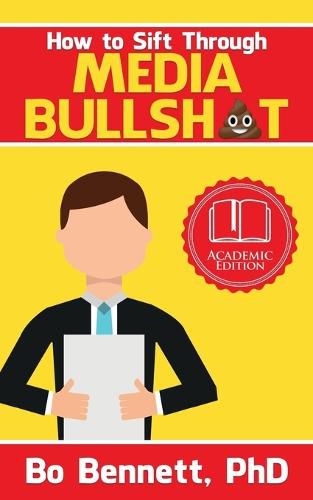Readings Newsletter
Become a Readings Member to make your shopping experience even easier.
Sign in or sign up for free!
You’re not far away from qualifying for FREE standard shipping within Australia
You’ve qualified for FREE standard shipping within Australia
The cart is loading…






This title is printed to order. This book may have been self-published. If so, we cannot guarantee the quality of the content. In the main most books will have gone through the editing process however some may not. We therefore suggest that you be aware of this before ordering this book. If in doubt check either the author or publisher’s details as we are unable to accept any returns unless they are faulty. Please contact us if you have any questions.
A fact is a fact, right? Unfortunately, it’s not that simple. A fact is primarily defined as a thing that is indisputably the case. The problem with that definition is that virtually anything can be disputed, and most things are. But the legal language of beyond a reasonable doubt applies to this definition. Many times, especially on the Internet, facts that are disputed are done so WITHOUT reasonable doubt. For example, there is an entire organization devoted to disputing the fact that the earth is NOT flat.
A secondary definition of fact is a piece of information used as evidence or as part of a report or news article. These facts are still things that are indisputably the case, or are supposed to be, but used in this context; facts are used to support a theory, conclusion, or opinion. For example, one might argue that the government is out to enslave its citizens. They may offer several facts to support that argument including the facts that the government can imprison people, the government has imprisoned people, and the government has no plans to stop imprisoning people. No reasonable person would dispute those facts, but that doesn’t mean that the facts adequately support the argument or claim.
Very little information we consume is straight fact. We consume opinion, commentary, satire, gossip, conspiracy theories, marketing copy, and other forms of non-facts. Even when we are given facts, it can be done in such way to mislead, deceive, and manipulate where we are led to develop a false sense of confidence in our conclusions based on these facts.
Oh, by the way, alternative facts, are falsehoods.
In this book, we will go over important concepts that will help you to become a more responsible consumer of information including:
We may not have a legal obligation when it comes to being a responsible consumer of information. But one can easily argue that we do have a moral obligation. A society is only as good as its citizens, and our intellectual contributions or lack thereof have far-reaching effects. While this short course is unlikely to make you a master of parsing information, it’s a heck of a good start!
$9.00 standard shipping within Australia
FREE standard shipping within Australia for orders over $100.00
Express & International shipping calculated at checkout
This title is printed to order. This book may have been self-published. If so, we cannot guarantee the quality of the content. In the main most books will have gone through the editing process however some may not. We therefore suggest that you be aware of this before ordering this book. If in doubt check either the author or publisher’s details as we are unable to accept any returns unless they are faulty. Please contact us if you have any questions.
A fact is a fact, right? Unfortunately, it’s not that simple. A fact is primarily defined as a thing that is indisputably the case. The problem with that definition is that virtually anything can be disputed, and most things are. But the legal language of beyond a reasonable doubt applies to this definition. Many times, especially on the Internet, facts that are disputed are done so WITHOUT reasonable doubt. For example, there is an entire organization devoted to disputing the fact that the earth is NOT flat.
A secondary definition of fact is a piece of information used as evidence or as part of a report or news article. These facts are still things that are indisputably the case, or are supposed to be, but used in this context; facts are used to support a theory, conclusion, or opinion. For example, one might argue that the government is out to enslave its citizens. They may offer several facts to support that argument including the facts that the government can imprison people, the government has imprisoned people, and the government has no plans to stop imprisoning people. No reasonable person would dispute those facts, but that doesn’t mean that the facts adequately support the argument or claim.
Very little information we consume is straight fact. We consume opinion, commentary, satire, gossip, conspiracy theories, marketing copy, and other forms of non-facts. Even when we are given facts, it can be done in such way to mislead, deceive, and manipulate where we are led to develop a false sense of confidence in our conclusions based on these facts.
Oh, by the way, alternative facts, are falsehoods.
In this book, we will go over important concepts that will help you to become a more responsible consumer of information including:
We may not have a legal obligation when it comes to being a responsible consumer of information. But one can easily argue that we do have a moral obligation. A society is only as good as its citizens, and our intellectual contributions or lack thereof have far-reaching effects. While this short course is unlikely to make you a master of parsing information, it’s a heck of a good start!